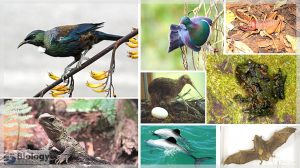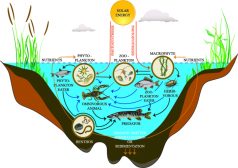Definition
noun
A parasitic roundworm of humans, generally dwelling in the intestines of human host
Supplement
Ascaris lumbricoides is a parasitic gut-dwelling nematode worm of humans and it poses major medical significance. The species causes human ascariasis. The larva can migrate through the body and cause obstruction, inflammation, and tissue damage. For instance, the larvae may migrate to lungs and cause lung inflammation. This condition may lead to Loeffler’s syndrome, which is a disease wherein the eosinophils accumulate in the lung in response to a parasitic infection. Another possible effect of severe A. lumbricoides infection is intestinal blockage. The large number of roundworms in the intestines results in the entanglement of the roundworms forming a bolus. The bolus, in turn, may block the intestine. This condition may lead to torsion and gangrene of the affected intestine and therefore may necessitate surgical removal of the roundworm bolus.
The species is regarded as the largest roundworm. The males are typically 2 – 4 mm in diameter and 15-31 cm in length. The females are generally 3 – 6 mm in diameter and 20 – 49 cm in length.
Word origin: Greek askarís (“an intestinal worm”)
Scientific classification:
- Kingdom: Animalia
- Phylum: Nematoda
- Class: Secernentea
- Order: Ascaridida
- Family: Ascarididae
- Genus: Ascaris
- Species: Ascaris lumbricoides (Linnaeus, 1758)
See also:
- ascarid
- ascariasis
- Ascaris suum







